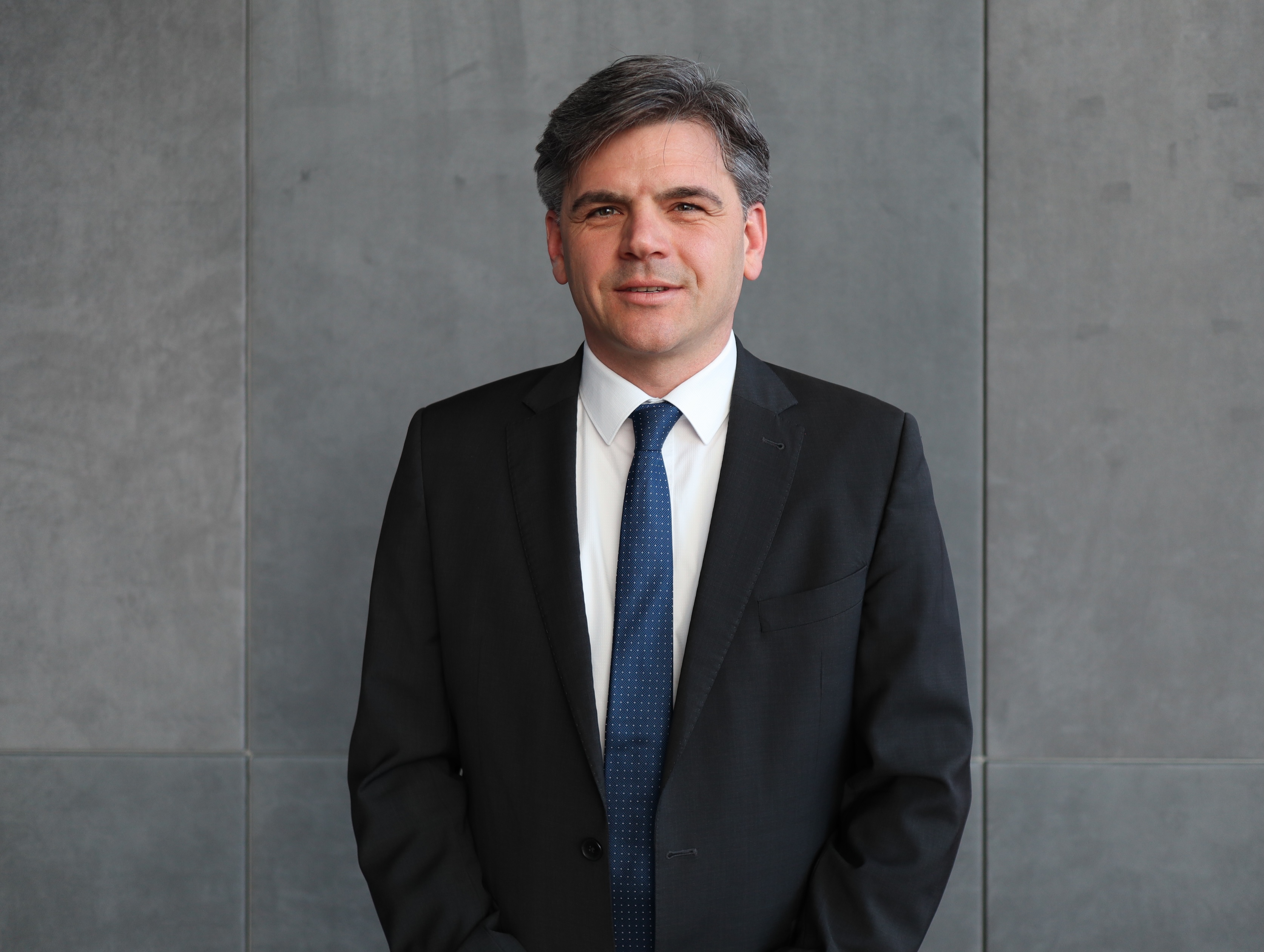
Interview: Dr Georg Lun on the Economic Importance of Linguistic Diversity in South Tyrol and Beyond
12.06.2025Dr Georg Lun is the Director of the IER (Institute for Economic Research) at the Chamber of Commerce of Bolzano (South Tyrol, Italy). His work focuses on analysing economic developments in South Tyrol, with particular attention to regional characteristics such as linguistic diversity, cross-border cooperation and innovation potential. In this interview, Dr Lun, who will also speak at the upcoming 9th Forum of European Minority Regions (26–28 June 2025 in Novi Sad/Újvidék, Serbia), discusses the economic value of linguistic diversity in South Tyrol, the role of multilingualism in cross-border cooperation and how cultural diversity can boost a region’s capacity for innovation and competitiveness.

Dr Lun, what economic factors make linguistic minorities in border regions an asset – for example, in the case of South Tyrol?
Linguistic minorities in border regions such as South Tyrol contribute to economic value in a variety of ways. Multilingualism supports cross-border trade and economic integration: companies in South Tyrol can more easily communicate with neighbouring countries such as Austria, Germany and Switzerland thanks to their language skills. This facilitates trade by eliminating language barriers and making negotiations, contracts and customer service more efficient. The ability to operate in multiple languages makes the region more attractive to international business partners and promotes cross-border cooperation.
Linguistic minorities also play an important role in tourism. South Tyrol is known for its cultural diversity and multilingualism (German, Italian, Ladin). This diversity attracts tourists from different countries who want to experience the region as open, welcoming and culturally rich. This strengthens South Tyrol’s position as an attractive travel destination.
Moreover, the innovation and creative sectors benefit: cultural and linguistic diversity fosters innovation, as different perspectives and ways of thinking come together. Creative industries such as design, media, arts and technology benefit from this diversity because they can develop new ideas and approaches based on various cultural backgrounds. This also enhances South Tyrol’s competitiveness in the European context.
Therefore, multilingualism is an economic advantage that strengthens the region and makes it fit for the future.
In your view, what are the most important findings from research on the economic impact of multilingualism or cultural diversity?
Multilingualism and cultural diversity foster innovation because challenges are approached from different perspectives, often leading to innovative solutions. Multilingual staff facilitate international business relationships and expand market reach. Cultural diversity attracts tourists and increases economic output in the tourism sector. Research has also shown that multicultural teams tend to be more creative and often find better solutions to problems. Overall, cultural diversity boosts the economic dynamism and innovation capacity of a region.

What role do autonomy arrangements or institutional frameworks play in the sustainable economic development of multilingual regions?
Autonomy arrangements provide stable and clear structures that foster cooperation between different language groups and help minimise conflict. By recognising and promoting linguistic diversity, regional identities can be strengthened. This increases social cohesion and encourages mutual acceptance. Through autonomous governance, regions can also develop their own economic strategies tailored to their specific needs and resources.
In South Tyrol, autonomy arrangements have contributed to steady economic growth over the past 50 years. However, I would also highlight the importance of the development of the EU single market and the Schengen Agreement, which established open borders.
What economic policy measures are needed to better harness the potential of minorities in border regions?
First and foremost, representatives of minorities must be included in economic policymaking processes. Support for media, cultural and educational institutions in minority languages is also essential for promoting border regions. In this context, educational opportunities are key – with instruction in both the minority language and the national language.
Investments in roads, rail links and digital infrastructure to improve connectivity with neighbouring regions not only support economic development but also facilitate cultural exchange.
Developing a regional umbrella brand can also be an effective tool. This allows cultural identity to be used as a unique selling point – for tourism, but also for the marketing of regional products. South Tyrol has implemented this successfully with the “Quality South Tyrol” brand.
Further information:
IER – Institute for Economic Research at the Bolzano Chamber of Commerce: Since 1982, WIFO has been analysing the economic development of South Tyrol. It provides in-depth studies on topics such as the labour market, education, public finance, growth, innovation, regional development and sustainability – as a basis for political and economic decision-making.
COMMUNIQUÉ DE PRESSE
- FUEN calls for the inclusion of the Ladin language at the 2026 Winter Olympic Games
- FUEN Urges UN Special Rapporteur to Advocate for a Coherent EU Minority Protection Framework
- FUEN wishes you a peaceful Christmas season, restful days and a bright, hopeful start to the new year!
- FUEN calls on the EU to act over systematic ethnic-based land confiscations in Slovakia
- Women of Minorities conference in Budapest calls for structural change to ensure equal political participation of minority women
- FUEN President Olivia Schubert at UN Forum on Minority Issues in Geneva
- "Laboratory of Peace": 28th Seminar of Slavic Minorities held in European Capital of Culture Gorica/Gorizia
- Equality in Political Participation and Representation: Third “Women of Minorities” Conference to Be Held in Budapest
- FUEN Working Group on Education discusses challenges and future of minority schooling in Europe
- 28th Seminar of Slavic Minorities in Europe to take place in Gorica/Gorizia, Italy














